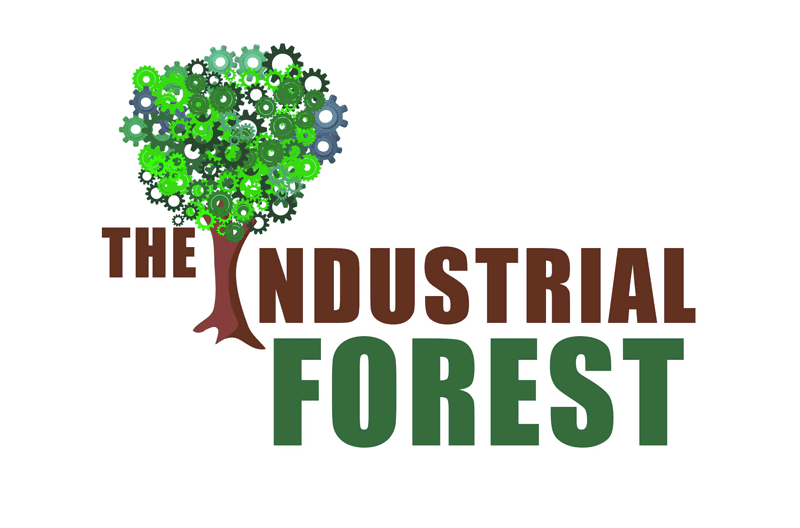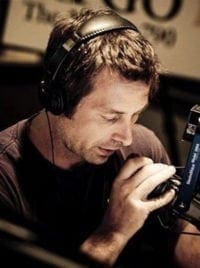Nearly ten years ago, journalist and entrepreneur Jason Spiess began investigating the oil and gas industry in the Bakken oilfields. Months of sleeping in his vehicle, touring well pads and having coffee with landowners shaped his view of the oil and gas industry and it was this embedded experience that changed his entire business plan and life purpose.
“Before we officially opened our doors, The Crude Life was going to be an investigation series against the oil and gas industry,” Spiess reveals. “After one week of experiencing the oil patch and talking to all kinds of people that are totally for industry and completely against it, I knew my business model had to change before I launched my company.”
Spiess, who personally Adopted-A-Highway in 2004, says it was energy innovation and reclamation programs that changed his mind on industry and talking with landowners changed his heart.
“Look, I’ve heard the good, the bad and the ugly about industry. Every area in life has it’s finger-pointing sound bites. But when you look at the everyday uses of energy, the carbon to hydrogen transition trends and the actual economic engine it is, the oil and gas industry is not only the leader in the environmental movement, it is vital to it.”
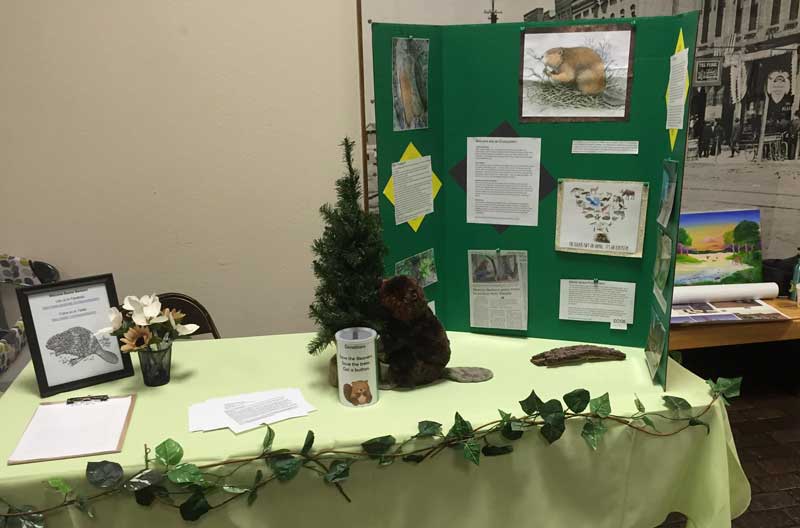
One of the main issues around tree planting is sustainability and Spiess says The Industrial Forest is another example of industry solving a problem. “According to a number of studies, about half the trees planted over the past 20 to 30 years die within the first year. That’s from nonprofit tree planting events to municipal tree planting programs. It’s a real-life problem and a serious eco-issue.”
It was this revelation that created The Industrial Forest’s slogan, “It Takes an Industry to Build a Forest.”
Lack of watering, transplant shock and poor growing conditions are a few reasons trees have a difficult time surviving. “The Industrial Forest uses a sustainability shed and a critical pipeline system in order to ensure the forest’s survival,” Spiess says. “Trees need more than just an Instagram pic or a corporate-sponsored field trip. They need water every day for one year and at least once a week for years after.”
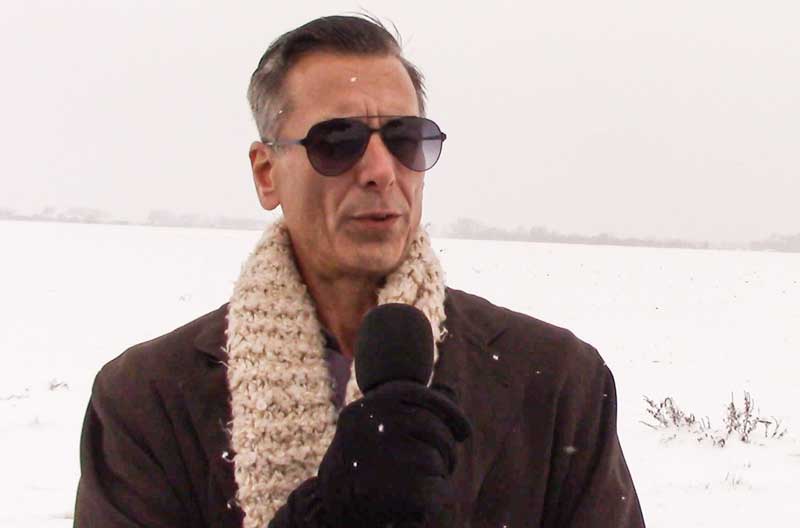
The Industrial Forest does more than build sustainable forests, it also creates jobs. Sustainability sheds and critical pipeline systems will need to be constructed and engineered. Local businesses like real estate companies, artists, communication professionals, wood fabricators and nurseries will be given opportunities for business during a time when doors are closing.
“We are creating something that is so unique and inclusive. A forest that advertises positivity for industry, creates jobs, consumes carbon, promotes the need for pipelines, demonstrates ethical capitalism and brings all walks of life together,” Spiess says. “It creates its own eco-system that allows trees to live and industry jobs to grow.”
The Industrial Forest will hold public meetings in each of the states leading up to the planting party and barbecue. These public meetings are designed to provide engagement, communication, awareness, inclusion and transparency, while the planting party and barbecue are community events.
“We will meet with local officials, civic leaders and industrial experts to ensure the trees survive, produce an ecosystem and absorb carbon for decades,” Spiess explains. “The Industrial Forest will stimulate community economies by purchasing young trees from local nurseries, stability stakes from fabricators and flora direction from county extension agents.”
Kendall DeHaan, who has been an environmental activist since protecting the beaver’s habitat in high school, has agreed to join The Industrial Forest as a sustainability supervisor.

“I met Jason back at VegFest back when I was in high school advocating for the beaver and its habitat. I remember thinking how odd it was that an oil and gas guy was at VegFest,” DeHaan says. “So, when Jason asked me if I would help industry build forests, I was very intrigued. Then when I saw the sustainability part of The Industrial Forest, I was like all in. Did you know most companies don’t even have a sustainability plan? How is that even a thing?”
DeHaan’s passion for sustainability has continued.
“My family is from Texas, so I have grown up hearing about the oil and gas industry. Jason has told me on multiple occasions over the years that industry is the leader in the environmental movement. I always rolled my eyes when he said that,” DeHaan says. “But now, if industry is going to build sustainable forests, I am ready to listen and plant trees. Besides, Jason has assured me that oil and gas will listen to me, too.”
The plan is to build a network of industrial forests across the United States by planting 1000 trees in 50 states over the next five years. The construction of the industrial forests will start in 2021 with five states. First year states are North Dakota, Minnesota, Colorado, Oklahoma and Texas. In 2022, 15 states are scheduled.
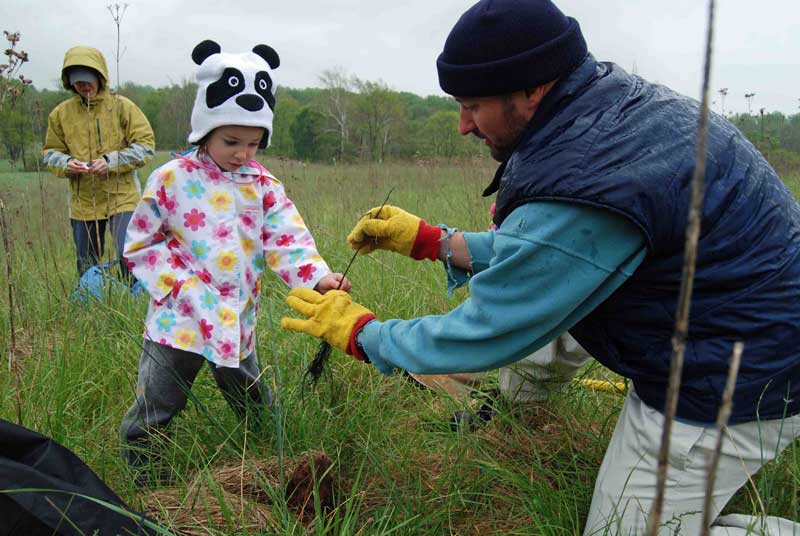
That’s a minimum of 50,000 trees and 10 million pounds of carbon consumed by Mother Earth. The word “minimum” is used because Bismarck, ND, is already looking at building a micro-industrial forest within its city limits as an educational walking park for the five-acre industrial forest.
“I am excited to be a part of The Industrial Forest and its potential to use shared knowledge to advance innovation and environmental stewardship. Currently, we are in the exploratory phase of site location and logistics; however, as the Mayor of Bismarck, I personally will do what it takes to make sure Bismarck, North Dakota, plants the first tree in The Industrial Forest.”
Mayor Steve Bakken appeared on a live recording session of The Crude Life at the Bakken barbecue where Spiess mentioned afterwards that he was partnering with The Industrial Forest and thought Bismarck might make a good site for a micro-forest. The mayor agreed.
“I’ve known Jason for nearly 15 years and cannot think of too many others who are more qualified to bring people and Mother Earth together,” Bakken says. “I’ve seen his best and worst, and what I can tell you about Jason Spiess is that he has the mind of a capitalist and the heart of a hippie.”
For more information about The Industrial Forest email info@theindustrialforest.com.
Jason Spiess is a multimedia journalist, entrepreneur and content consultant. Spiess has over 25 years of media experience in broadcasting, journalism, reporting and principal ownership in media companies. (Over 30 years experience if you count his adolescent years as a newspaper delivery boy learning the importance and logistics of daily distribution and monthly door-to-door bill collecting.) Spiess has worked in the areas of oil and gas, UAS and precision agriculture, health care, cannabis, agriculture, real estate, government affairs and economic development. Spiess is the host of two radio programs, Building the Bakken and Coffee & Capitalism, and three specialty programs, MonDak OilField Review, Corporate Ink and UnStuck, that carry a radio network that spans five states and two countries. Spiess is a North Dakota native and graduated from North Dakota State University.

